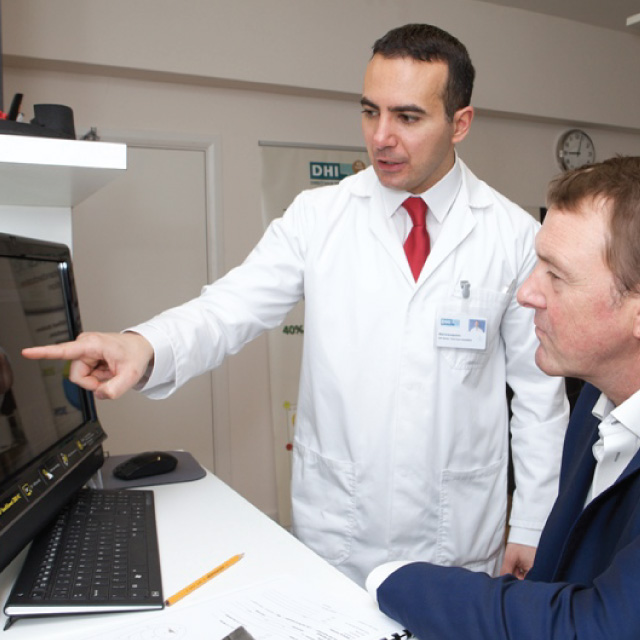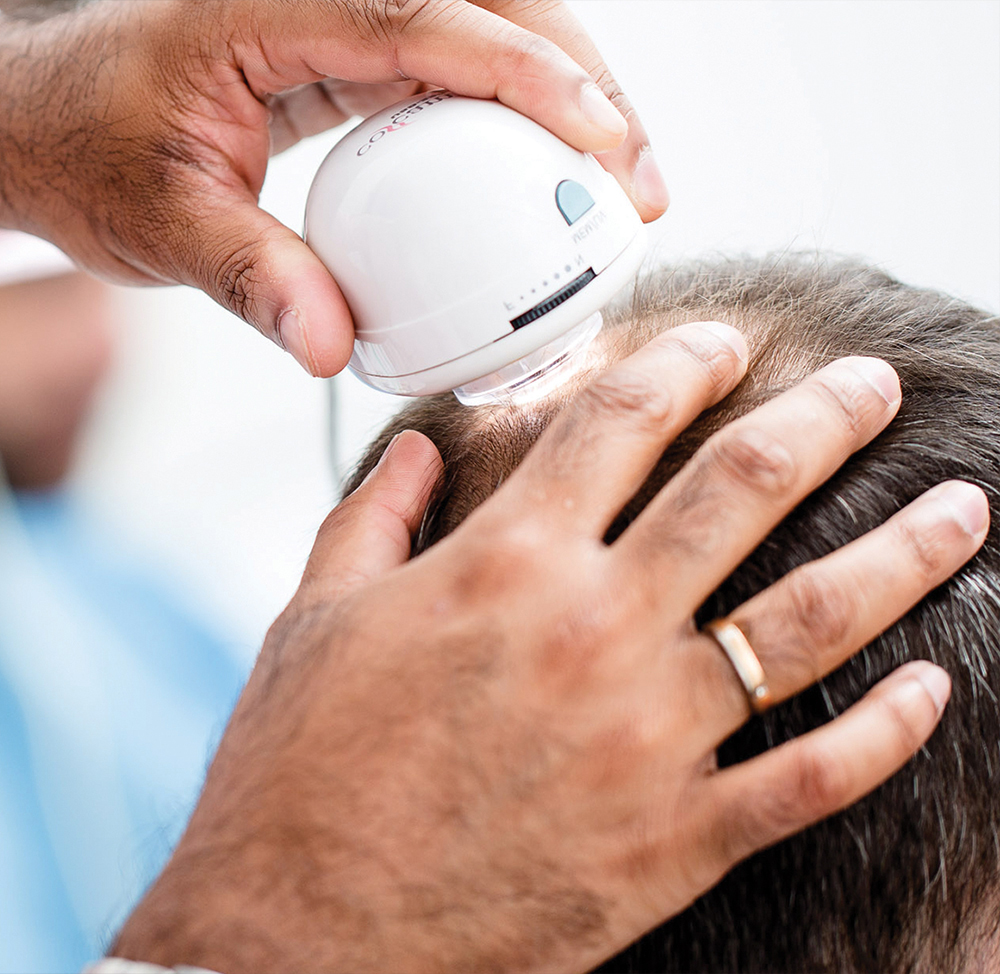At DHI Global Medical Group we believe that diagnosis is the basis for successful and permanent treatment of hair loss. This is why we have developed a very sophisticated diagnostic system for hair loss, the Unique Diagnostic System for Alopecia (UDSA)
Hair loss cannot be attributed to a single cause. There are multiple kinds of alopecia with each having a different treatment plan. Hair transplants work as a treatment only in few kinds of alopecia. Most clinics across the globe do not diagnose for alopecia, but at a DHI clinic each patient undergoes a thorough dermatological examination and alopecia test before a treatment is suggested. As a result each patient receives a treatment plan that is unique to their needs.
UDSA examines each specific case individually, including psychological aspects, dermatological examinations, mathematical aspects and the DHI alopecia test before determining the appropriate treatment plan.
UDSA was developed by a team of world renowned experts to provide accurate and personalized diagnosis for all types of alopecia – hair and scalp disorders.
A team of DHI experts that include administrative consultant, dermatologist, plastic surgeon, psychologist and endocrinologist are involved in the diagnostic process, according to each patient’s needs. A scientific board compiled of internationally renowned medical experts supervises and approves every treatment plan.

Hair loss has major effects on patient’s lives and strong influence on their psychology. According to scientific researches, hair loss can lead on anxiety disorders or even depression.
The DHI Hair Psychology Test was developed in collaboration with Professor of Psychiatry in the University of Athens, Charalambos Papageorgiou, during an in-depth study and exploration of psychiatric dimensions of hair diseases, in order to determine the necessity of combinatorial access of these conditions and any underlying psychopathology.
Hair loss has major effects on patient’s lives and strong influence. DHI Alopecia Test is performed by a team of DHI Specialists which includes a dermatologist, a plastic surgeon, an endocrinologist, a psychologist and an administrative consultant.
The DHI Alopecia Test examines each case individually, including dermatological examination, mathematical aspects of available hairs in donor area over a lifetime and the psychological aspects, before determining the appropriate treatment plan.
The whole diagnostic process and the approvement of every treatment plan is supervised by the DHI Scientific Board, compiled by internationally renowned medical experts.

In DHI TOTAL CARE SYSTEM, the hair loss diagnosis is first step to create a detailed treatment plan. The alopecia diagnosis at DHI clinics through a comprehensive and sophisticated diagnostic system known as the Unique Diagnostic System for Alopecia (UDSA). This system encompasses four major components: the alopecia test, psychological aspect, dermatological aspect, and the mathematical aspect. The DHI alopecia test measures hair density and thickness in various scalp areas, while the psychological aspect assesses the emotional impact of hair loss.
Yes, at a DHI clinic, you can undergo a comprehensive diagnostic process that aims to provide a personalized and definitive diagnosis for alopecia during a single visit. The UDSA system, which includes multiple components such as the DHI alopecia test, psychological assessment, dermatological examination, and mathematical analysis, allows for a thorough evaluation of your hair and scalp condition.
The time required to obtain a diagnosis for alopecia at DHI can typically be completed during your visit to the clinic. The UDSA diagnostic system is designed to efficiently and comprehensively assess your condition. Our integrated approach streamlines the diagnostic process, allowing for a prompt and accurate diagnosis that forms the basis for your personalized treatment plan.
During the diagnostic process for alopecia at DHI, it's important to be open and transparent about your hair and scalp condition. You should communicate any relevant medical history, including family history of hair loss, stress level, lifestyle and provide details about your hair loss symptoms and any treatments you may have tried in the past.